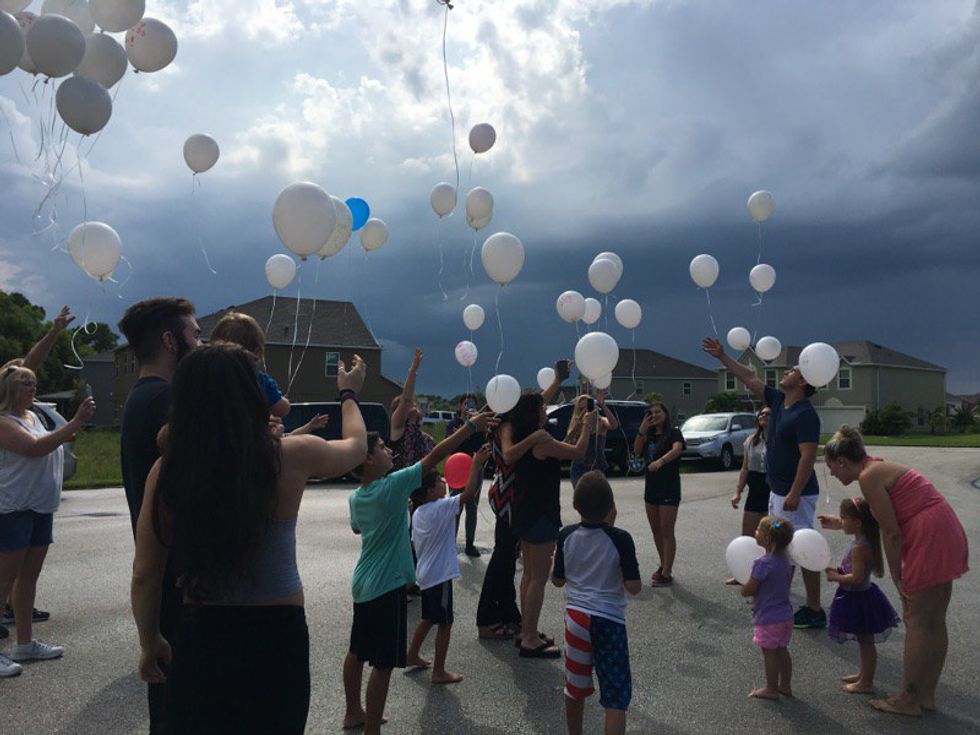I’d like to start this article by noting that, despite its presence in pop-culture and some beginner psychology classes, Kübler-Ross’s 5 stage model of grief lacks much empirical support. Due to its accessibility, however, I have chosen the Kübler-Ross grief model as a vehicle for this “Stages of Grief” series. More information about the Kübler-Ross grief model can be found here.
If you have recently lost someone you love and feel you have no one to talk to, please don’t hesitate to reach out to the Crisis Text Line by texting the word “start” to 741-741.
“So, what did you do over the summer?”
I tense, and images come unbidden to the forefront of my mind: innumerable hospital visits; browsing gravestones; laughing at the direct defiance of nurses’ orders; scouring Facebook, Instagram and years-old CDs for family photographs; the breath held when I heard my mother’s voice as quiet small, and devastated as I’d ever heard it say, “I can’t believe he’s never coming home.”
In July, my father died.
In the days afterward, we had family and friends from all over the country fly into town. They held us and cried for us, because we were still in shock. They busied us with movies and trips to the mall and brought us so much food we didn’t cook for a week. Some watched me especially carefully, because I wasn’t eating. They brought life into a home that otherwise would have been unlivable. They gave us the strength to get up every morning, to remember the good; words cannot express my gratitude. On the day of his body’s burial, we had about 100 people packed into my family home. The energy was palpable, incredible. All of these people who loved and laughed with and cherished my father were in one place together, and I felt, for the first time in days, a flicker of hope that things could get better.
And then they had to leave. We spent nights with friends who lived nearby in town, and I steadily began to drink more than I should. My mom would ask me if I was okay, and I’d shrug and say, “I will be.”
And then we had to go back to work. My first day back I entered the building quiet, silent; the second I saw a friend and the heartache they felt for me in their eyes, I smiled wide, asked them how they’d been, avoiding at all costs the question, “How are you doing?”
And then I was home. And suddenly my family wasn’t down the hall or right beside me, but hundreds of miles away. And I missed them more than I could stand. And my husband picked up extra shifts to cover the income lost when we were gone, so my days were spent between hiding my feelings at work and avoiding my feelings at home by binge-watching “Ancient Aliens” and playing with my cats.
And then, weeks later, his birthday came. The birthday Dad said he wouldn’t see, but we’d vehemently denied, assuring him, “Of course you will.” The birthday he shared with his oldest granddaughter, my niece. My brother said they woke her up that day with balloons all over her floor wishing her a happy birthday, and her four-year-old face beamed as she said, “It’s Papa’s birthday, too!”
He would have been 46.
We were together again. My mother had the idea for the family to release 46 balloons in the air at the end of my niece’s birthday party. Most of us wrote messages to him on our balloons; some of us wrote inside jokes. My nieces drew him pictures, and couldn’t wait for Papa to get them in heaven.
Outside my brother’s house, 20 or so of us stood in the cul-de-sac, waiting. My mother stepped into the center of the circle, and after a strong, but tearful, “We love you; we miss you,” she gave the signal for us to let go.
The pictures don’t do it justice. Being there in that moment, surrounded by your family and well-wishes written on white balloons, watching them float higher and higher into the troposphere, hoping that each and every message is received, standing mesmerized, forever altered by the sight: it was a powerful moment. Because despite the fact we all felt wretched, hearts aching with his absence, we created something beautiful–together.






















